Steve Diggle plays guitar, writes songs, and sometimes sings for The Buzzcocks, the hugely influential band from Manchester which produced the blueprint for pop punk. The Buzzcocks also jump-started the punk do-it-yourself ethos with their 1977 self-released Spiral Scratch EP, on which Diggle played bass guitar. The Buzzcocks’ notable songs include “Orgasm Addict”, “Ever Fallen in Love (With Someone You Shouldn’t’ve)”, “I Don’t Mind”, “Promises”, and “Harmony In The Head”. Their compilation Singles Going Steady is regularly ranked as one of the best punk rock albums of all time.
The Buzzcocks broke up in 1981, but re-united in the late 80’s and have been going strong ever since. Between performances at this year’s Coachella festival, they will be playing a few smaller gigs in California, including one in San Luis Obispo for which this interview served as the material for a preview article. I reached Diggle, who also released a solo album called Air Conditioning last year, at his home in London. The interview took place on 3/23/12. (Ian Rook photo)
Jeff Moehlis: What can we look forward to at the upcoming Buzzcocks shows in the U.S.?
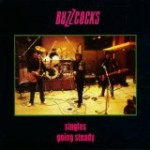
Steve Diggle: Well, legendary songs from a legendary band. We’ll be doing a mixture of songs from the whole of our musical catalog. Selections from each thing. And a few new songs. I’m not sure whether we’re going to do two new songs or four new songs. Haven’t quite quite worked that out yet. Probably two new songs, as well, and a lot of the classics, and some from the later albums. So yeah, you know, it’s a whole mix there. That’s what you can expect.
JM: I’ll be seeing you in a smallish club, but as part of this trip you’ll also be playing at Coachella, which will be in front of thousands of people in the desert. How does it compare playing at a big festival versus a small club?
SD: They’ve both got their own thing really, you know? I mean, essentially you’re still playing to people, that’s what you’ve got to remember [laughs]. It’s just we might be playing to more people one day than another.
You get the intimacy of the club, which obviously is a great rockin’ vibe. And then you get the great sense of occasion of a big event. You’re kind of still dealing with the same thing, but in a slightly different way. I mean, it’s great to see thousands of people kind of jumping up and down or getting involved on a bigger scale, that’s one thing. You’ve got the grandness of the event, you know?
Then in the other one, the more intimate place, then you can kind of smell the sweat. It’s almost like you’re inside of the song in a smaller place. It’s a bit more internal.
But they’ve both got their points. It’s a great thing to do. Life’s full of extremities anyway, you know [laughs]? In your life you go from one extreme to the other – happy, sad, crazy, mad – you know, you’ve got that difference.
At Coachella we’re also going to play two songs off of… We’re going to do Pete [Shelley]’s “Homosapien”, and a song off my solo album I had out last year, an album called Air Conditioning. I’m going to do a song called “Hey Maria”. We’re doing that at Coachella. I think the promoter kind of asked if we’d do two of those songs, so we’re like, OK, we’ll do one each off of each of our respective solo careers, as well as doing the Buzzcocks stuff. So that’s a different set.
JM: The Buzzcocks first toured the US in 1979. Do you have any memories of that tour that you’d like to share?
SD: Kind of fragmented, yeah. I mean, great memories. Those were wild tours, those early ones. You kind of come to America and you learn to realize how big it is, how great it is. It was certainly rock ‘n’ roll on those early tours. Sex, drugs, craziness, and massive shows. The thing about America, if you kick ass they like you. And we like kicking ass. You could do that more than in London, in a sense. In Britain, it was still rockin’ and a bit refined, but in America it has to be bigger and greater. I remember we smashed our gear up a lot of times in the States. I think, in fact, we played Santa Monica Civic the first time, and I think some kid smashed a window so they said we’d never play again. However, I think we did play about two years later, the same venue as well.
Yeah, it was fantastic. I remember at the Santa Monica Civic gig a lot of kids coming to the bus. They’d been waiting two years to see us, because we’d had a lot of success, a lot of hits in Britain. It was a little while, over two years, before we came to the States, and I know people had been waiting. It was a great reception, you know?
And like I say, very wild tour. A lot of fucking coke, a lot of girls, and some fantastic gigs. The Ramones came to see us in New York. There were a lot of things going on. Full on rock ‘n’ roll, how you expect it to be in America. And everywhere else in the world, really.
JM: Can you tell me how you came to join The Buzzcocks?
SD: Malcolm McLaren introduced me to Pete and Howard [Devoto], at the time in ’76. I was waiting for somebody else. I was going to form a band, do three minute songs and smash up our gear like The Who. I was talking on the street, and he thought I’d come to meet Pete and Howard [laughs]. So they were expecting someone else. I’d spoke to somebody on the phone that had an ad in the paper, to meet somebody else. But instead, they met me and I met them. The respective people we were supposed to meet, we didn’t meet them. And it was like, OK, we’ll do a rehearsal the next day, and away it went. It was just magic from the word ‘go’.
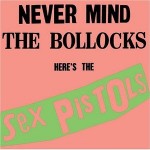
JM: I read somewhere that you were actually going to the pub, not to the Sex Pistols gig. Is that true?
SD: Yeah, I mean I knew the Sex Pistols were playing, but it was more important to me to meet this guy and join the band. Where they were playing, around the corner was this lovely bar I used to go in. They had a special Boddingtons Bitter, which is well known in Manchester. So essentially I was going to do that. He [McLaren] kind of said that he was inside here. And I said, I don’t remember anything about this. I was kind of thinking of going in, but I thought it was more important to meet this guy, and see where it goes. Because I didn’t know who the guy was, I didn’t know whether he’d want to go in and see the Pistols, or I figured we’d at least have a drink first and see what happens. And, of course, I never met him, and I went in to the Sex Pistols, with about fifteen people.
There weren’t many people in there, that first show. We brought the Pistols back three weeks later, so we had three weeks to get The Buzzcocks together. So that’s the full story of how that happened. It’s kind of amazing how your life can just change. You turn one corner, you don’t know what’s going to happen, you know?
JM: The Sex Pistols gig is legendary because, it’s claimed at least, that it led to a number of bands being formed – The Buzzcocks, Joy Division, The Fall, The Smiths, and so on.
SD: Yes, they all came to that second show, when we were playing. We opened up for the Pistols. Well everyone was amazed it was a local band from Manchester. Everybody basically had come to see the Sex Pistols, all the press came down from London to review the Pistols, and were blown away when we opened up. It’s like, who the fuck are these guys? They’re from Manchester! Look at these guys. And so, we got the reviews, and that kind of put the provinces on the map. It wasn’t just all about London. Of course, that kind of kickstarted that Manchester scene, and like you say, many people were in the audience who went on to form bands. People like Joy Division, and Mick Hucknall – you know, Simply Red, and The Fall, and Morrisey was there taking notes [laughs]. It was inspirational in a lot of ways, that gig.
To me, that was where the punk rock atom was split open, in Manchester, for the British side of things. There were The Ramones in New York and stuff, but over here that was like the Bethlehem I think… That’s where the real punk rock was born. Because the Pistols had only done a couple of clubs here, like Chelsea Art College and stuff. They were relatively unknown, even then. But that gig kind of crystalized things and put in on the map a bit.
JM: The Buzzcocks did tour with Joy Division. How would you describe the Ian Curtis that you knew?
SD: We were playing big theaters, and we’d had a couple of hits, so we took them on the road to open up for us. Because in those days, all the bands used to help each other. So we took them on the road. There were a few shows where he’d have those epileptic fits. So they’d go on and do their set, then we’d go on and do the full main set. We were quite often told to do an extra few songs in the encore while the ambulance went to the back of the theater to take him to the hospital. Because we’d have about two or three hundred kids come to the backstage door after the show and stuff, so we had to extend the set quite a few times so the ambulance could come and the kids wouldn’t leave the theater trying to get autographs from us and stuff [laughs]. There was that bit of it, yeah.
Apart from that, generally, he got to it OK. He did tell me that… At the end of the tour, we had a party in Edinburgh, he was a little bit troubled because he said he’d met a girl in Paris, and he was married, you know? But, I mean, in those days, when you’re twenty years old or twenty-one, you don’t think that’s a big deal, you know what I mean? We were all kind of enjoying fucking life in a way [laughs]. It’s like, you know, you fuck the chicks, I thought that’s one of the reasons you got in a band, you know, for us really. So I didn’t think it was a big deal. But when it got on, a few days later after that tour, he’d killed himself.
And then it happened with Kurt Cobain a few years later [laughs].
JM: And you toured with them also, right?
SD: Yeah, Joy Division opened up for us, then we opened up for Nirvana on their last tour. I said, “See you in London, Kurt”, and he went home and shot himself. That was kind of weird, you know? Different kind of guys like that – you’re with them one minute, then the next minute, like, what the fuck? The tour’s ended and then they’re fucking dead. Really strange.
JM: Did you see the Joy Division movie Control, and was that accurate?
SD: I’ve not seen it. Because I remember what it was like there at the time, so I’ve not actually gotten around to seeing it. I just remember being in Paris, and somebody was coming out having watched it, some French guys, and I was passing the cinema. It freaked him out. It was like, “Fuck, there’s Steve from The Buzzcocks. We’ve just been watching the Joy Division movie.” But I haven’t seen it. I was there, you know? [laughs] Will do one day.
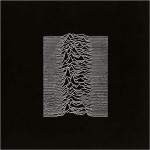
As far as I was concerned, we were the masters. We taught them everything they new, you know? If you listen to their first album, it sounds like our Time’s Up bootleg, our first demos we did. The little similarities, you can see where they took their cue from, which they did their own thing with after, you know?
But yeah, I didn’t get around to seeing the movie, which surprises me. I must check it out.
JM: The Buzzcocks also, back then, toured with The Fall. Mark E. Smith has quite a reputation as a prickly character. Do you get on with him?
SD: Yeah, I mean he had to be grateful to us in those days because we took him on a lot of early tours and helped him out. We helped a lot of those bands out in those days. That was a kind of punk ethic. We did the White Riot tour with The Clash, and then when we started headlining the big venues we took people like The Fall. It was always OK with us. I think he was grateful we gave him a lot of breaks.
We did that with a few bands – Siouxsie and the Banshees, John Cooper Clarke. In fact, all the opening acts we took with us, all became very successful. All sort of made their mark, and were distinctive in their own way. We’re kind of thinking, we should open up for ourselves. We could be even bigger [laughs].
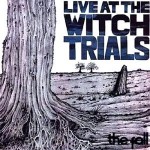
I know he’s got that reputation, but it’s a long time ago since that. We took him on many shows in the early days, and really helped them along, put them on the map. He’s never been prickly with me, you know? If he does, I’ll fucking get a guitar and slam it over his head [both laugh].
I know he’s told some stories about me to people, which is nice. He is a fan of The Buzzcocks, you know? And we go back a long way. He was always OK with us.
JM: I have a question about the first Buzzcocks’ EP, Spiral Scratch, which was influential musically, but maybe even moreso because it was a do-it-yourself release. Did you have any idea at that time what that was going to unleash?
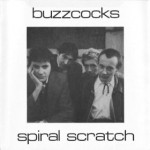
SD: Well, you know, it was kind of a necessity, really. We thought it was the most uncommercial music possible, and that if we went to record company they wouldn’t be interested. They’d think, “What the fuck?” Because it kind of sounds raw, and weird, and unique. At the time, record companies were just putting out smooth kind of stuff, you know? So we felt if we make a thousand records, and maybe sell some around the gigs in Manchester… that was as far as we looked at.
But all of a sudden, people kind of picked up on that record. It was distributed by Rough Trade over here, then. A guy Geoff Travis phoned up and said, “I’ll put it in the shops”, and stuff. And it sold quite a lot, then. That was in the days when things were kind of word-of-mouth in punk. It was pre-computer. In fact, the word-of-mouth was faster than the computers, I think. Certainly, Spiral Scratch was known everywhere. Of course, it got to the States and everything else. I think it was a very powerful and inspirational EP, really. It opened up people’s eyes a lot, just by the sheer nature of it. And the fact that you could do it yourself. Certainly everybody over in Britain over here, or a lot of bands, started making their own records.
I know it was done in The Fifties in America. But I think… It was just our necessity. We just felt the only way we were going to hear ourselves on a record is if we make one. Which was kind of a stroke of genius, but it was also our necessity. Looking back, it’s like, “Fuck, how did we come to that?” It was like, that’s probably the only way it’s going to be.
Of course, after that you’ve got all the record companies wanting to sign you. But yeah, legendary EP. That inspired a lot of people to go out and do it themselves?
JM: In the early days, what were your goals for The Buzzcocks? Just to make music, or you wanted to get signed to a label?
SD: What happened was, as the song on that EP says, “Boredom”. We were bored. There was nothing happening. There were the progressive groups around, but they’d kind of run their course, really. There was Emerson, Lake, and Palmer, Yes, and all these kind of people, but I think they’d kind of come full circle. We wanted something exciting, and something lyrically that was relevant to us. And something that kind of described about your life, that you could relate to in your life. They were singing about mushrooms in the sky, and things like that. That kind of stuff, which was cool in the beginning, but all of the sudden the world has kind of changed, and it was like you need something more out of fucking songs than this. We need to feel alive, you know? So that the initial thing of what we were trying to do. Create some excitement, and some interest, and also some intellectuality about things. And that’s kind of what happened, really, yeah.
That was the initial goal. I mean, we didn’t think we’d be doing it all these years later. We didn’t plan anything out. We’ve never sat around a table, a boardroom, or anything, going, “If we do this, therefore we can do that.” It’s all been very organic. We were organic before people became organic. It was just like, OK this, go with the flow, let’s do this, let’s just do that. It’s whatever came up, which was a bit more natural, I think.
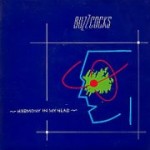
JM: Probably the best known song that you wrote was “Harmony In My Head”. Could you give your quick reflections on that song?
SD: I think we’d had a couple of hits. I mean, I wrote the second biggest hit, which was “Promises”, but Pete sang it. I wrote the chords and the music. “Promises”, did all the music and chords. I said, “You sing it. You sing the verse.” So I hummed the tune, and he wrote the verse. That was kind of like a nice harmony type of song, “Ever Fallen in Love” was and that.
We were on the Top of the Pops and the charts a lot. So now we’re in this position of power, now we need this song that’s like a fucking steamroller, you know? Something to really kick the fucking ass of Top of the Pops. That’s what the thinking was behind “Harmony In My Head”, in a way.
Also, it was that kind of feeling that there was alienation in the big cities. And it was also inspired by James Joyce, William Burroughs, and even Bowie a little bit on the cut-ups. James Joyce wrote Ulysses, this cinematic imagery, that everywhere we are we get these inputs from everything. More fragmented, we have a lot of these things. So I tried to write the lyrics like that, like as in you were walking down a street, and there are these fucking shopping malls there, giant shopping malls making you feel impersonal. Giant buildings, you know? In Manchester, the buildings were getting higher, and it seemed like we were getting smaller as human beings, you know, overpowered. So it was about all that kind of stuff.
Also, I thought it was going to be as hard as “Anarchy In The UK”, or any Clash song. It’s just as fucking tough as “Anarchy In The UK” or fucking any Clash song, as far as I’m concerned.
I read about John Lennon when he sang “Twist and Shout”, he smoked twenty cigarettes before he sang it, to get that rough vocal sound. So that’s what I did on that. The producer, Martin Rushent, at the time said, “Why don’t you sing the vocal?” I’m going, “No, I want it to be rough as fuck.” I want it with that real rough rock vocal sound. So that’s what I did with it.
And like I say, we had these many hits. “Promises” was a sweet song. That was my song, really. That was our second biggest hit. But then, I thought I’ve got to come back with something really heavy, and something really punky. That’s what I did, “Harmony In My Head”. And it was great being on Top of the Pops, selling that. Have some of fucking this, you know? You had to mime on that, and I didn’t even mime in sync, deliberately, to make it look more ridiculous. Take the piss out of the program [laughs].
JM: Why did The Buzzcocks break up in 1981, and what brought them together later in the 1980’s?
SD: I think we’d been about five years with each other. It was quite intense, and we were quite prolific. We put a lot of singles out. Singles seemed to come out every two months or something. We were on tour all the time everywhere. We came to the States a lot of times. Like I say, we had some crazy tours there, and in Britain, and in Europe. You know, in any band, you’re kind of married to four people, really, at the same time. You kind of get like that’s all you see, in a way. You know, you see the hotels, you see the towns, you meet people at the shows. But essentially it’s the same four people. It’s a lot to maintain.
Every group has their problems with that. They either split or they end up arguing forever. We were just a bit exhausted, as well. So we were going to take a bit of time off, and then finally we decided to call it a day for a bit. Because we didn’t want to go out if the band wasn’t firing on a cylinders. So it was kind of a lot to do with that, really.
And then, we went off and did our own things, I had my band Flag of Convenience, and Pete did his solo stuff. That’d kind of come full circle. When I was playing in Germany with Flag of Convenience, they billed it as Buzzcocks. I abbreviated it to F.O.C., and they billed it as Buzzcocks F.O.C. Even though I wasn’t doing any Buzzcocks songs, I didn’t want to do any. So that kind of was the catalyst, the rumor that we were back.
Now, Ian Copeland, our American agent, I think he was in Berlin at the time. He’d seen the poster and thought we’d got back, so he phoned us up. I kind of said, no, we’re not back, they billed it like that over there. They billed it in Paris and in Germany for me like that, which I didn’t particularly like. But it was kind of going “Steve Diggle from The Buzzcocks and his band F.O.C.” That kickstarted it. So it was like, well OK, well if everybody’s up for it we’ll do a tour. And that’s what happened.
What we did, we came to the States and did a tour. We thought, we’ll do the tour of America, and we’ll see what happens. Then we went to Australia, then we were in Japan, then we came to Britain and did a tour.
Initially it was kind of like, let’s do a tour of America for old time’s sake, or whatever. Let’s just see what happens. We’ll do the tour, we won’t plan any further than that. And incredibly, as I say, we ended up going around the world. That’s what kind of got us back.
And the good thing about it, we’d kind of had a rest, we’d done the other things which I really enjoyed, and I learned a lot from doing other things outside of the group, working with different people. And then that’d kind of come full circle and it was time for The Buzzcocks to get back. When we got back, you realized what a great chemistry we had in the first place. Me and Pete have been the longest-standing members – well, right through the whole thirty-six years of it now. And we’ve never sat down and harmonized, or practiced for the guitar, we just kind of go, “Well, if you’re doing that, I’m doing this, so if I’m doing that, you do that.” He’ll come up with something, or I’ll come up with something. It’s a very magical thing. We don’t have to sit down there and try and work on it. It’s just something between us that works. Some magic, some alchemy that’s incredible. When we got back, it was like, “Yeah, that’s what was great about the fucking Buzzcocks.” Me and him, and those guitars. And the songs, and the way we complemented each other on the songs. Like I’ll put the riff on “Everybody’s Happy Nowadays”, he came in with the song and I put that riff on it. That’s the way it works. So there was good reason to get back.
When we weren’t together, a lot of people were going, “Will you guys ever to get back?” And we thought, “Oh, I don’t know. It’s been a bit long.” Now it’s quite a few years, you know? I’d kind of given up on that, and the next minute we were back. And we’ve been back longer than we were in the first place, now [laughs]. And to be honest, with the line-up we’ve got now, it’s better than ever.
JM: Kurt Cobain came up earlier. Do you have any good Kurt Cobain stories?
SD: There’s one classic one that I’ve told a couple of times.
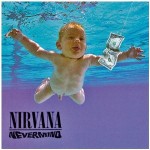
They came to see us in Boston when “[Smells Like] Teen Spirit” was No. 1, and the album Nevermind was No. 1. We played in Boston and they came backstage to see us after the show and said, “Will you join us on the US tour?” which we couldn’t. But we said, when you come to Europe give us a call. So they did, and we did that last tour with them. We started off in Portugal, and it was France and all of that kind of stuff. And I think we did about eleven or twelve dates with them. So we got to know them well. They were great guys. Dave Grohl, Pat Smear, Chris Novoselic, and Kurt.
But on the first day, I flew into Portugal and I said to the tour manager, “I don’t want to buy any Nirvana hats or scarves or anything. Where’s the fucking coke?” [laughs] He said, “Oh, I’ll take you to the bus. I don’t know…” I said, “Just tell him it’s Steve. He knows.” So I got on the bus and he gave me a couple of grams. I put it out on the table, and he went upstairs on the bus. So I offered all of the other guys some, you know, I’d chopped all these lines, and they all refused. So each time a member of the band… “Dave Grohl, you want any?” “No.” So I did another one. “Pat Smear?” “No.” “Chris?” “No.” The roadie? “No.” So I did the lot, so when Kurt came downstairs on the bus, he goes, “What happened to the coke, Steve?” I said, “Fuck, Kurt, I’ve offered to everybody and I forgot about you. I’ve done the lot.” [laughs] So I kind of said, “Look, when you come along, then I’ll sort you out then.”
And of course, he never made it. I hope that wasn’t the reason he fucking blew his head off. God bless him. I mean, he was a great guy, we spend a lot of time together on that tour. Kind of walking around, walking around those stadiums we were doing, and talking and a lot of things. We got on really well. And all the band, you know. We loved those guys. They were big fans, Kurt was a massive fan. I think he loved “Harmony In My Head” because he loved the vocal sound. When you’re listening to his voice, I mean, there’s a little… you can hear how he likes “Harmony In My Head” with his voice. You see what I mean? That kind of shouting thing, he’s going “That’s a great vocal, Steve. That’s one of my favorite songs.” When I hear Nirvana, I think, “Fuck yeah, I can see why he likes it.” It’s got a bit of similarity on that song, that kind of half-shouting, half-singing rock ‘n’ roll things.
That’s one of the stories. There’s many other things. But it was an amazing tour, and by the time I got back to London it was all on the news that he’d shot himself. I was like, “What the fuck?” It was very strange, because having spend over a week and a half with him, or whatever it was, you kind of got used to him everyday, and then the next thing you’ve seen him on the national news around the world that he’s dead. He was still there, like he was still with me, you know what I mean? With all of us. It was like, “Fuck, I was with him yesterday almost.” That kind of thing. He’s just gone. And then you see him on the TV everywhere, it’s like, “Fuck, I was with the guy yesterday. Now he’s on the national news around the world.” They’ve even got footage of him and that. It’s like, this is crazy.
God bless him. We was a wonderful guy, and wrote some amazing songs, and I admired his sentiment and everything. I admired what he was singing about, and the band. The band was amazing live. With Dave on the drums and Chris on the bass, it was like, “Fuck!” That was a powerhouse of a band. Fantastic.
They did love the Buzzcocks. Like I say, they were big fans. They liked a lot of punk music as well. They were big fans, and that’s why they wanted us to play with them.
JM: What advice would you give to an aspiring musician?
SD: You’ve got to have some kind of self-belief. Because with music you’re dabbling in the darkness and the spirits, and you’ve got to have some solid self-belief to give you a guiding light through the darkness, the heaven and the fucking hell of it all. Because, as you know, many highs and as many lows… it’s like going through a fucking swamp. You’ve got to be real strong, that’s the first thing.
It’s one thing to learn to play. Anybody can learn to play a few chords, but you’ve got to have that strength not to lose yourself. And you’ve got to believe you can get through the forest, or from one end of the tunnel to the other, and still keep something of who you are. Because people lose themselves so much in music, where it can really fuck you up. As we know from casualties.
But having that self-belief, and the love of or some kind of commitment to it, that can see you through to the other side of the river. That’s the main thing. To the land of milk and honey, almost [laughs].
You know, it’s not all bad. But that’s the main advice. The playing is the easy bit in a way. It’s hard to learn to play and write songs, but you can get that down. But, it’s that other stuff that breaks people. You’ve have to have that fucking will of iron to keep going, because you’re in a ring with fucking Muhammad Ali getting fucking punched to pieces in the music business. You’ve got to fucking take the punches, you know, a fucking Joe Frazier is punching the fucking lights out of you, and you’ve got to come back with some fucking hit records or some kind of music that fucking gives it back a bit.
I know that’s weird advice, but I’ve come through to the other side myself. Through the drugs, I’m pretty clean now and all that stuff. I’ve been through the fucking mill like a lot of people of my age that are still around surviving. I’ve done all the fucking drugs on the tours, and all the things, and no sleep, and everything else. But you’ve still got to get up and write the songs, and that’s the excitement of it. That’s the reward, or whatever it is.
Because a lot of musicians don’t know what’s going to come to them. I’ve seen people crack up on tour buses because they can’t handle it, they kind of change, you know? It’s like one of those TV reality shows, when they do those two month tours of America on the bus. They start off thinking this is going to be great. We’re going to St. Louis, Los Angeles, we’re going to Seattle, we’re going to Kansas, all the rest of it. But after a few fucking weeks some of them just fucking crack up. I’ve seen tour managers and crew members go to pieces [laughs]. But I’m not one of those. I’m made of fucking steel, so I got through it [laughs].
JM: What are your plans, with The Buzzcocks or otherwise, for the near future? I know you have the tour of the States coming up.
SD: Tomorrow we’re going to Serbia – Belgrade, Serbia. We’re doing a gig out there in a big theater. The day after we come back we’re going to record two new songs, kind of like a single or whatever. And then we’re going to continue on, after we’ve recorded these two songs, we’re going to sort of continue on and make an album. We should have an album out by the end of the year, by the autumn or something like that. So that’s the main thing. It’s time for a new Buzzcocks album. We’ve been on the road for about two or three years now, constantly going around. Which has been fantastic, but it’s definitely time for a new Buzzcocks album. That’s kind of exciting.
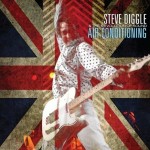
I’ve just been in the studio working on my next solo album. Like I say, I had one out last year called Air Conditioning, and that was kind of a political album, really. On the day it came out the students started rioting here, and I thought that album Air Conditioning is right on target. Because it’s kind of about the times now, in a political way.
JM: Do you want to set the record straight on anything about your career, or some misconceptions that are floating around?
SD: There’s probably millions of misconceptions, but it’ll all work out itself in a way. I mean, people know who you are through the music, but they don’t know who you are as a person, maybe.
One thing that pisses me off, they think we just sing love songs. When I wrote “Autonomy”, which is on the first album, that was a political song. “She’s a Girl from a Chainstore” is a political song. I wrote a song called “Sick City Sometimes” about 9/11. When we were recording it the towers fell down, so I had to put the last verse, “Now those buildings take a fall / And he tries to kill us all / In the name of something zero in your mind”. That’s not a fucking love song to me, you know? So people should realize that Buzzcocks sing about the whole of the human condition, and not just fucking play “Ever Fallen In Love” all the time. That boils the shit out of me. It’s like we’re typecast sometimes. Great song, but there’s a lot more other sides just as good.
It’s like just playing The Who’s “My Generation” and forgetting about Who’s Next, “Won’t Get Fooled Again”, you know what I mean? There’s 135 songs to choose from. I think people get lazy sometimes. But yeah, to set the record straight on that. They should check out, there’s a whole catalog and see what we’re singing about all around. And that’s including Pete’s songs as well. The closest I got to a love song is “Love Is Life”, and that was an anti-love song [laughs].
If you could mention my album Air Conditioning – you can download it on iTunes, or you can order it on amazon.com – that’d be cool. And that there will be a new Buzzcocks album out, hopefully by the fall.
JM: Am I correct that you are in London right now?
SD: That is correct, yeah. Like I say, I’ve just got in from the studio.
I did one interview once with my mate Jim Sullivan from the Boston Globe, and he said, “Where are you right now?” and I was standing outside the building where The Beatles sang on the roof, Savile Row in London. It’s not every day that you can go, “Well, you wouldn’t believe this, but I’m just outside the building where The Beatles sang on the roof” [laughs].
Luckily we’ve got California weather here, but we’re looking for a bit more out there as well. We love coming to L.A. One of the reasons is the sun in California. I do like a bit of sun these days.
Today’s Buzzcocks: (L to R) Steve Diggle, Danny Farrant, Chris Remmington, Pete Shelley. (Ian Rook photo)

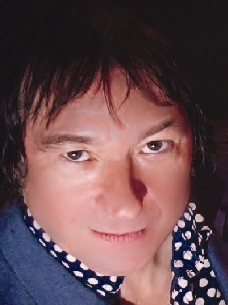
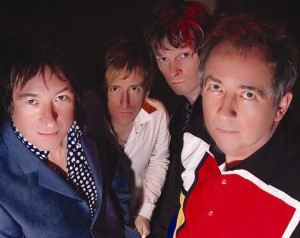
Awesome interview!! Steve’s very honest and right on the answers. Really looking forward to hearing the new album. Long live The BuZzcocks!!!